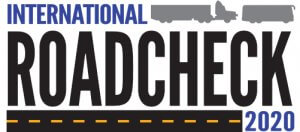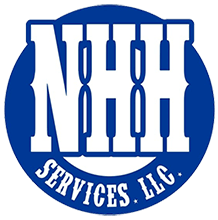The Commercial Vehicle Safety Alliance’s (CVSA) announced this year’s International Roadcheck will take place May 5-7 instead of in June as in past years, with a special emphasis on the driver requirements category of a roadside inspection. 
The International Roadcheck is a high-volume, high-visibility three-day enforcement initiative that highlights the importance of commercial motor vehicle safety through roadside inspections. During the 72-hour blitz, commercial motor vehicle inspectors in jurisdictions throughout North America will conduct inspections on commercial motor vehicles and drivers.
This year’s focus, “driver requirements,” puts a special emphasis on driver-related violations, including the following:
- Driver’s age
- Commercial driver’s license
- Driver medical/physical requirements
- Sickness of fatigue
- Intoxicating beverages and drugs and other substances
- Driver’s record of duty status – U.S., Canada or Mexico
During Roadcheck, CVSA-certified inspectors primarily conduct the North American Standard Level I Inspection, a 37-step procedure that includes two main inspection categories: an examination of driver operating requirements and vehicle mechanical fitness. A third category, hazardous materials/dangerous goods, may also be part of the Level I Inspection.
The CVSA also said these additional violations top the charts and will be specifically looked at during a 2020 Roadcheck inspection due to this year’s special emphasis.
- Failure to use a seatbelt
- Operatring a property-carrying vehicle without a valid medical certificate
- ELD – no record of duty status (ELD is requried)
- Driver failed to maintain supply of blank records of duty status graph grids
- Driver failed to maintain ELD instruction sheet
Here is how the Level I Inspection is conducted:
- An inspector will start each inspection procedure by greeting, interviewing and preparing the driver. The inspector will collect and verify the driver’s documetns, identify the motor carrier, examine the driver’s license or commercial driver’s license, check record of duty status and review periodic inspection reports. If applicable, the inspector will check the Medical Examiner’s Certificate, Skill Performance Evaluation Certificate and the driver’s daily vehicle inspector report. Inspectors will also check drivers for seat belt usage, illness, fatigue and any apparent alcohol and/or drug possession or impairment.
- The inspection includes checking critical vehicle inspection items such as: brake systems, cargo securement, coupling devices, driveline/driveshift components, missing driver’s seat, exhaust systems, frames, fuel systems, lighting devices, steering mechanisms, suspensions, tires, van and open-top trailer bodies, wheels, rims and hubs, and windshield wipers.
- If no critical vehicle inspection item violations are found during a Level I or Level V Inspection, a CVSA decal will be applied to the vehicle, indicating that the vehicle successfully passed a decal-eligible inspection conducted by a CVSA-certified inspector; however, when a rear impact guard is required and violations are present, a CVSA decal shall not be issued.
- If an inspector does identify critical vehicle inspection item violations, he or she may render the vehicle out of service if the condition meets the North American Standard Out-of-Service Criteria. This means the vehicle cannot be operated until the vehicle violation(s) are corrected. A driver can also be placed out of service for driver credential-related issues or driver conditions, such as fatigue or impairment.
Keep in mind, out of service orders and the number, type and severity of safety violations affect a motor carrier’s Compliance, Safety, Accountability (CSA) score and its Safety Fitness Determination rating. CSA is the safety compliance and enforcement program of the Federal Motor Carrier Safety Administration (FMCSA) designed to improve safety and prevent commercial motor vehicle crashes, injuries and fatalities by holding motor carriers and drivers accountable for their role in safety.
Questions? NHH Services
NHH Services is committed to driver support, compliance and safety. If you have any questions, give us a call at 765-650-4164 or send us an email to info@nhhservices.com.
